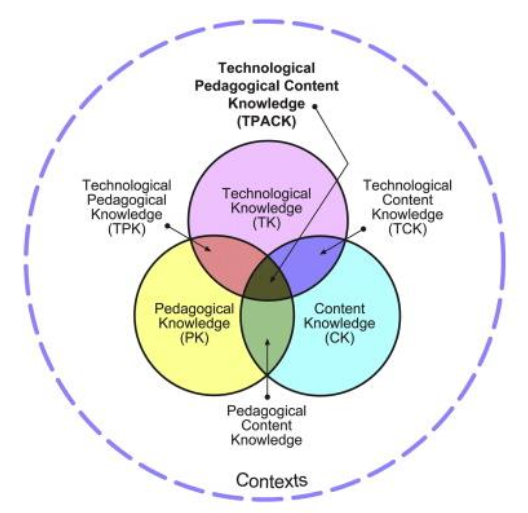The Management of Online Learning and Teaching: Towards the Professional Standards Framework for teaching and supporting learning in higher education
Keywords:
Online teaching and learning, Professional Standards Framework, teaching and supporting learning, Higher educationAbstract
In the climate of the Coronavirus pandemic throughout the world including Thailand, digital and educational technologies have become an increasingly important part of students’ lives. Online teaching and learning have been arranged to continue the mission of the institutes of all educational institutions At the same time, various online programs have been developed to support online teaching as virtual classroom teaching by communication technology business. However, tools in particular online programs are considered applicable comparing to limitation in classroom teaching. For this reason, teachers are required to improve instructional skills through the usage of technology so as to maximize educational benefits while achieving learning outcomes of the institutions. The Technological Pedagogical Content Knowledge (TPACK) framework is therefore proposed in term of applying learning design, whereas using the Professional Standards Framework for teaching and supporting learning in higher education in teaching towards the professional online instructors to be recognized at the international level.
Downloads
References
Matsom Y. A Model of a Decision Making Planning Strategy for the Development of Online Courses for Teacher Education Program. In: Association for the Advancement of Computing in Education (AACE); 2006:1274-1278. https://www.learntechlib.org/primary/p/22235/
Keengwe J, T. Kidd T. Towards Best Practices in Online Learning and Teaching in Higher Education. MERLOT J Online Learn Teach. 2010;6(2):533-541.
World Health Organization. Coronavirus. WHO Coronavirus disease (COVID-19) outbreak situation. Accessed April 20, 2020. https://www.who.int/emergencies/diseases/novel-coronavirus-2019
สุวิทย์ เมษินทรีย์. โลกเปลี่ยน คนปรับ เตรียมคนไทยเป็นมนุษย์ที่สมบูรณ์ในโลกหลังโควิด-19. Published online April 20, 2563. https://waa.inter.nstda.or.th/stks/pub/2020/20200506-2-the-world-changes-covid19.pdf
บุญทิพย์ สิริธรังศรี, ชุติวัฒน์ สุวัตถิพงศ์, เปรมฤทัย น้อยหมื่นไวย, พัทยา แก้วสาร, เรณุการ์ ทองคำรอด. การใช้ ICT ทดแทนการสัมมนาแบบเผชิญหน้า สำหรับการเรียนการสอนทางการบริหารการพยาบาล. วารสารพยาบาลทหารบก. 2561;19(Sppl.):203-212.
Laros A, Fuhr T, Taylor EW, eds. Transformative Learning Meets Bildung: An International Exchange. Sense Publishers; 2017. https://doi.org/10.1007/978-94-6300-797-9
Kentnor H. Distance Education and the Evolution of Online Learning in the United States. Curric Teach Dialogue. 2015;17(1 & 2):21-34.
Koehler MI, Mishra P. Introducing TPCK. In: AACTE Committee on Innovation and Technology, ed. Handbook of Technological Pedagogical Content Knowledge (TPCK) for Educators. Routledge for the American Association of Colleges for Teacher Education; 2008.
Maybin J, Mercer N, Stierer B. “Scaffolding”: learning in the classroom. In: Norman K, ed. Thinking Voices: The Work of the National Oracy Project. Hodder & Stoughton; 1992:186-195. Accessed June 16, 2020. http://oro.open.ac.uk/20227/
Pelz B. (My) Three Principles of Effective Online Pedagogy. J Asynchronous Learn Netw. 2010;14(1):103-116.
UK higher education sector, Guild HE and Universities U. UK Professional Standards Framework (PSF) | Advance HE. Published 2011. https://www.advance-he.ac.uk/guidance/teaching-and-learning/ukpsf
Klein HJ, Noe RA, Wang C. Motivation to Learn and Course Outcomes: The Impact of Delivery Mode, Learning Goal Orientation, and Perceived Barriers and Enablers. Pers Psychol. 2006;59(3):665-702. https://doi.org/10.1111/j.1744-6570.2006.00050.x
Hergenhahn BR, Olson MH. An Introduction to Theories of Learning. 6th ed. Prentice Hall; 2001.
Merriam SB, Caffarella RS. Learning in Adulthood: A Comprehensive Guide. Jossey-Bass; 1991.
สุมน อมรวิวัฒน์. การพัฒนาการเรียนรู้ตามแนวพุทธศาสตร์. 1st ed. มหาวิทยาลัยสุโขทัยธรรมาธิราช; 2542.
Fisher M, King J, Tague G. Development of a self-directed learning readiness scale for nursing education. Nurse Educ Today. 2001;21(7):516-525. https://doi.org/10.1054/nedt.2001.0589
Knowles MS. Self-Directed Learning: A Guide for Learners and Teachers. Cambridge Adult Education; 1975.
Mezirow J. Learning to think like an adult: Core concepts of transformation theory. In: Mezirow J, ed. Learning as Transformation: Critical Perspectives on a Theory in Progress. Jossey-Bass; 2000:3-34.
เกษม วัฒนชัย. การปฏิรูปการศึกษาไทย. สำนักงานคณะกรรมการการศึกษาแห่งชาติ; 2545.
Reushle S, Mitchell M. Sharing the journey of facilitator and learner: Online pedagogy in practice. J Learn Des. 2012;3(1):11-20. https://doi.org/10.5204/jld.v3i1.45
Barbara M, Yukie T, Robert M, Marianne B, Karla J. Evaluation of Evidence-Based Practices in Online Learning: A Meta-Analysis and Review of Online Learning Studies. U.S. Department of Education, Office of Planning, Evaluation, and Policy Development; 2010. https://www2.ed.gov/rschstat/eval/tech/evidence-based-practices/finalreport.pdf
สุรศักดิ์ ปาเฮ. การประเมินผลสื่อการเรียนรู้ (ออนไลน์). Published 2555. Accessed November 23, 2015. http://.addkutec3.com/wp-content/.../learning-media-evaluation.pdf

Downloads
Published
How to Cite
Issue
Section
License
Copyright and Disclaimer
Articles published in this journal are the copyright of Chulabhorn Royal Academy.
The opinions expressed in each article are those of the individual authors and do not necessarily reflect the views of Chulabhorn Royal Academy or any other faculty members of the Academy. The authors are fully responsible for all content in their respective articles. In the event of any errors or inaccuracies, the responsibility lies solely with the individual authors.


